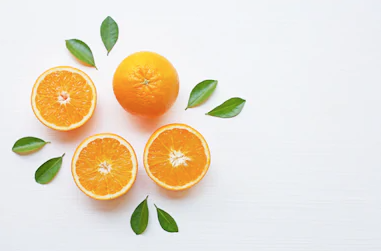By: Heidi Wagenbach
We’ve all heard that saying before when we’re sick with a cold: “drink lots of liquids– and make sure you get some vitamin C!” With the drastic spread of COVID-19, the sudden awareness of germs seems to have spiked with the new protocols of wearing masks, social distancing, washing hands– but what does vitamin C actually do for your body? And what are the best foods to intake your daily, necessary amount? Keep reading to find out!
Studies Show…
The recommended daily intake of vitamin C is 75mg for women and 90mg for men. Taking a supplement everyday is how a lot of people guarantee they meet that number and some of the benefits include: lowering your risk of chronic/heart disease, managing high blood pressure, helping prevent iron deficiency, boosting immunity, and protecting your memory/thinking as you age. Unfortunately, some claims are unproven, such that vitamin C prevents the common cold, reduces cancer, and protects against eye disease (Raman).
Vitamin C is also a big producer of collagen, which is the main factor of connective and muscle tissue. Tendons, cartilage, bones, and blood vessels are all huge components of the body that collagen assists, so to neglect vitamin C and obtain a deprivation would be detrimental to your health (just as would be consuming too much). With an increased collagen intake, your skin benefits as well (Wilson).
Eat Your Greens
According to the National Institutes of Health, fruits and veggies contain the most sources of vitamin C and consuming five various servings can provide the appropriate amount of what your body requires.
½ Cup Red Pepper – 95 mg (106% of Daily Value)
¾ Cup Orange Juice – 93 mg (103%)
1 Medium Kiwi – 64 mg (71%)
½ Broccoli (cooked) – 51 mg (57%)
½ Cup Strawberries – 49 mg (54%)
½ Cup Brussel Sprouts – 48 mg (53%)
½ Cup Cantaloupe – 29 mg (32%)
Some of the more rare sources include Kakadu plums, an Australia native, and have a huge amount of vitamin C (481 mg per plum!), equalling 530% of the daily value. ½ cup of Acerola cherries has 822 mg or 913%. Rose hips, the fruits that come from rose plants, are also packed with vitamin C, or 119 mg per 6. Guavas have 126 mg, kale has 53 mg, papayas have 87 mg, and lemons have 83 mg (Hill).
The Takeaway
Vitamin C, just like any other vitamin your body needs, is important and will assist you in your overall health. The best solution to confirming you get enough is to make sure you eat a good diet that contains natural foods like vegetables and fruits. If you’re concerned that you’re lacking in the vitamin C department, then a dietary supplement is always an option, but be sure to read the nutrition facts label or consult with your doctor. Now that foods, such as cereal and milk, are infused with more vitamins and minerals, the majority of the population shouldn’t have to worry about their diet as long as everything is in moderation.
Works Cited
Hill, Caroline. 20 Foods That Are High in Vitamin C, Healthline, 5 June 2018,
www.healthline.com/nutrition/vitamin-c-foods.
Raman, Ryan. 7 Impressive Ways Vitamin C Benefits Your Body, Healthline, 18 Feb. 2020,
www.healthline.com/nutrition/vitamin-c-benefits.
Wilson, Debra Rose. Vitamin C: Why is it important?, MedicalNewsToday, 10 Apr. 2017,
www.medicalnewstoday.com/articles/219352#sources_and_requirements.

